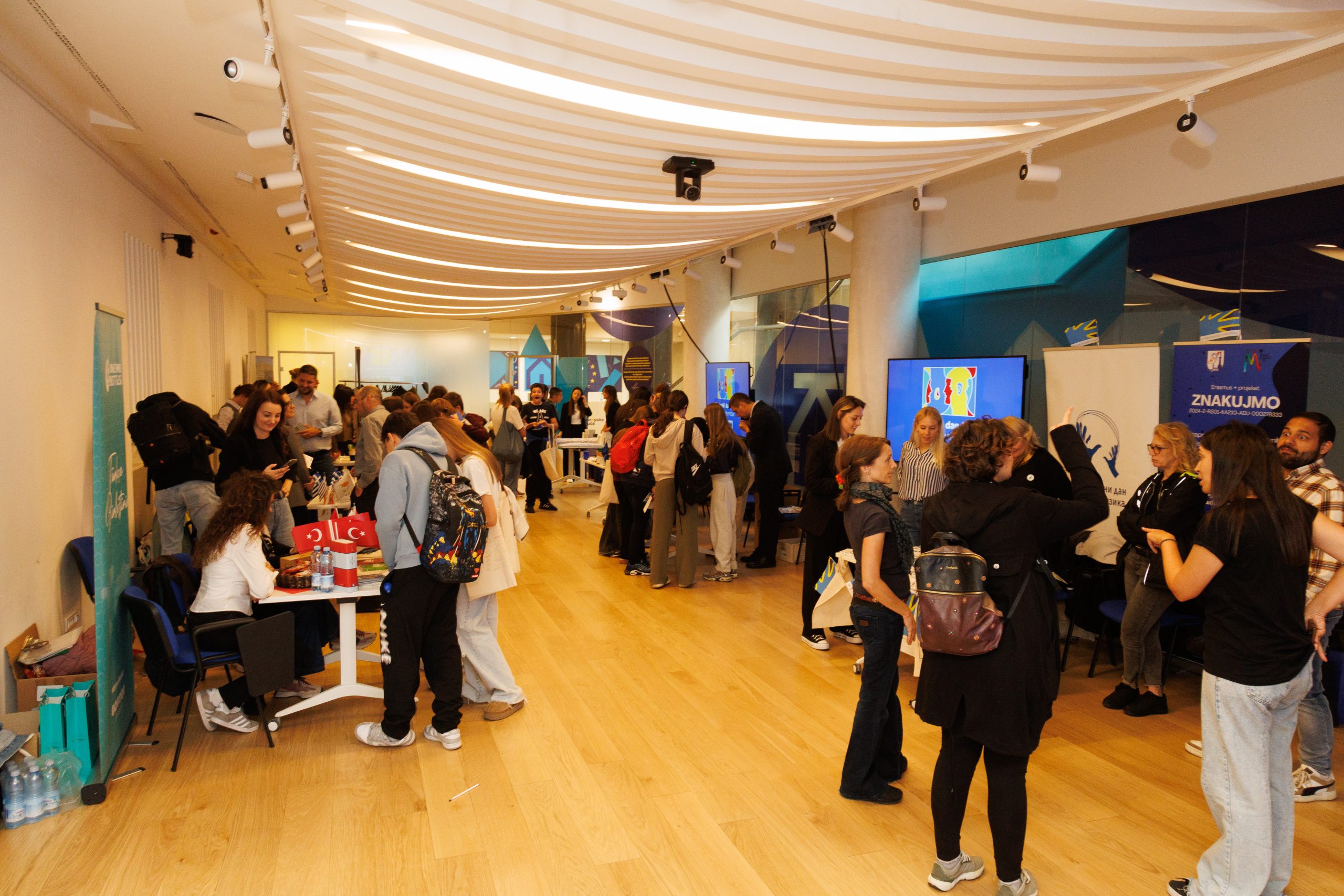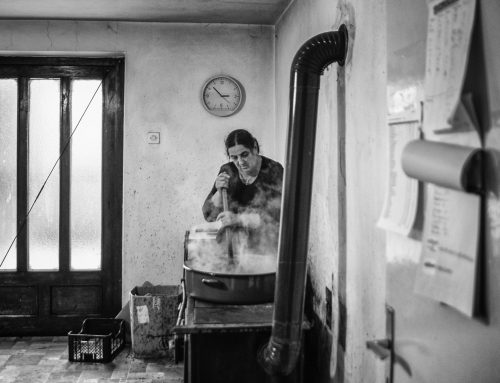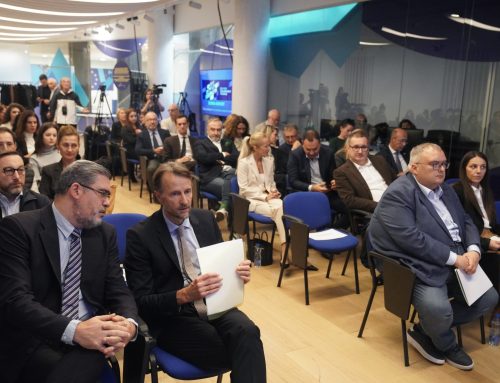Under the slogan “Languages open the heart and mind,” Serbia marked the European Day of Languages. Traditionally aimed at children aged 12 to 18, the event seeks to encourage the learning of foreign languages and to bring Europe’s diversity closer to all visitors. Twenty-seven countries and organisations are taking part, while pupils have the opportunity to get to know 22 languages in an interactive way.
This year’s 25th jubilee edition was organised by the EUNIC network (European Union National Institutes for Culture) Serbia, in cooperation with the Council of Europe, the Delegation of the European Union to Serbia and the Ministry of European Integration of the Republic of Serbia. At EUNIC’s initiative, a European Day of Languages web platform was also created, allowing schools across Serbia to join the celebration.
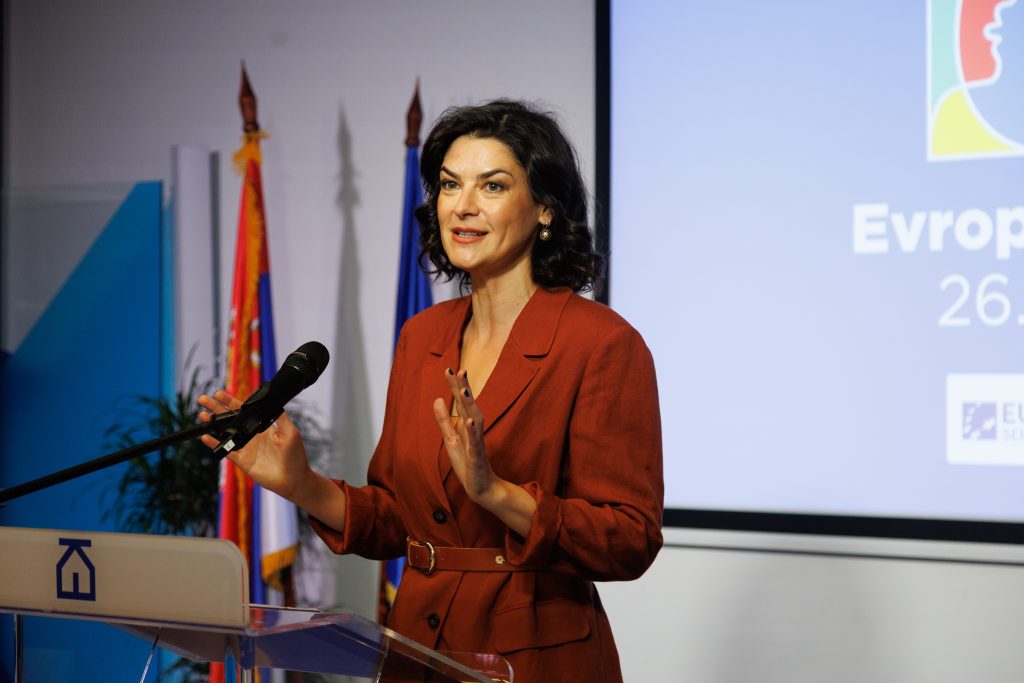
“For the European Union, this day is dedicated to nurturing understanding, respect and a sense of belonging to our common European project. Our motto ‘United in Diversity’ is best reflected through languages, because they show us how diversity does not divide us, but enriches us. I am delighted to welcome so many pupils, and I am especially pleased with the inclusiveness of this year’s programme, with classes in Romani and sign language, as this shows that every language matters and every voice matters,” said Plamena Halačeva, Deputy Head of the Delegation of the European Union to Serbia, in her opening address at Europe House in Belgrade.
The celebration took place at five locations in the centre of Belgrade. At Europe House, pupils explored different countries and languages, while at the French Institute in Serbia, the Goethe-Institut, Instituto Cervantes and the Cultural Department of the Hungarian Embassy – Collegium Hungaricum – they had the opportunity to attend mini language lessons and try their hand at learning one or more languages. At the start, pupils received a “language passport,” and by solving games and quizzes at different stands, they could collect stamps in their passports and win prizes in raffles provided by various cultural institutes and embassies.
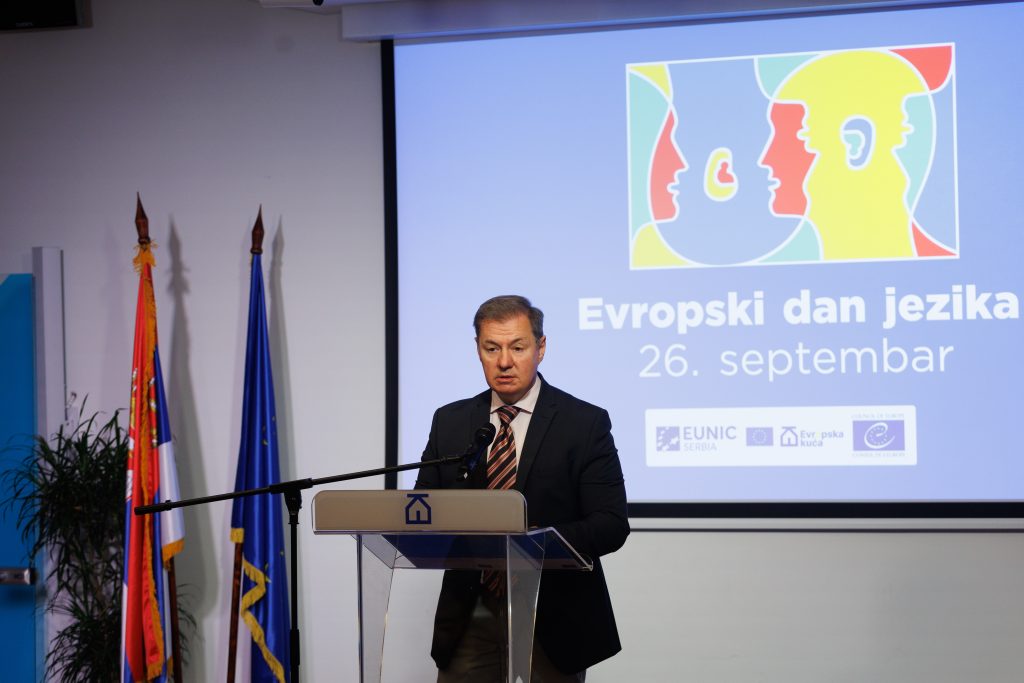
“Languages are not just a means of communication; they are bridges between people, guardians of identity and sources of mutual understanding. Each language carries stories, traditions and values that enrich our shared European heritage,” said Janoš Babić, Head of the Council of Europe Office in Belgrade, noting that Europe is home to more than 200 languages, including a wealth of regional and minority languages.
“In the context of European integration, multilingualism is becoming ever more important. Knowledge of languages opens doors to education, mobility, economic and cultural exchanges, and to deeper mutual understanding. That is why promoting and nurturing languages is not only a matter of culture; it is also a genuine matter of deeper European integration,” stressed Miroslav Gačević, Assistant Minister for European Integration.
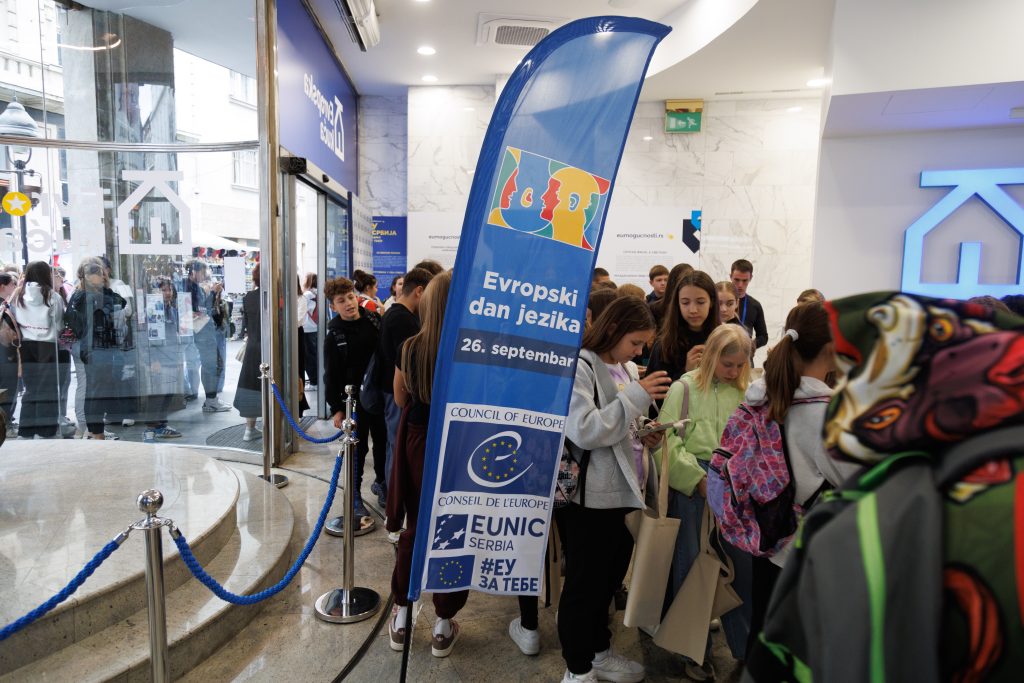
Lucie Orbok, Director of the Czech Centre in Belgrade and President of the EUNIC Serbia network, noted that this event is the largest for members of the EUNIC cluster in Serbia. “Nearly 1,000 pupils are attending this year, so together with the Goethe-Institut we developed the European Day of Languages digital platform as a tool that will be available to teachers across Serbia,” Orbok said.
This year’s participants included: the Council of Europe – Council of Europe Office in Belgrade; the Delegation of the European Union to Serbia; Europe House; Collegium Hungaricum; the Czech Centre; the Goethe-Institut; Instituto Cervantes; the French Institute; the Italian Cultural Institute; the Embassies of Albania, Belgium, Denmark, Finland (and the Serbian-Finnish Society ‘Seura’), the Netherlands, Poland, Portugal, Romania, Slovakia, Slovenia, Sweden and Ukraine; the European Roma Institute for Arts and Culture (ERIAC) and the Roma Education Fund; the Hellenic Foundation for Culture; the Ministry of European Integration; the Austrian Cultural Forum; the Belgrade City Association of the Deaf; the Yunus Emre Institute; and the Department of Scandinavian Studies at the Faculty of Philology in Belgrade.
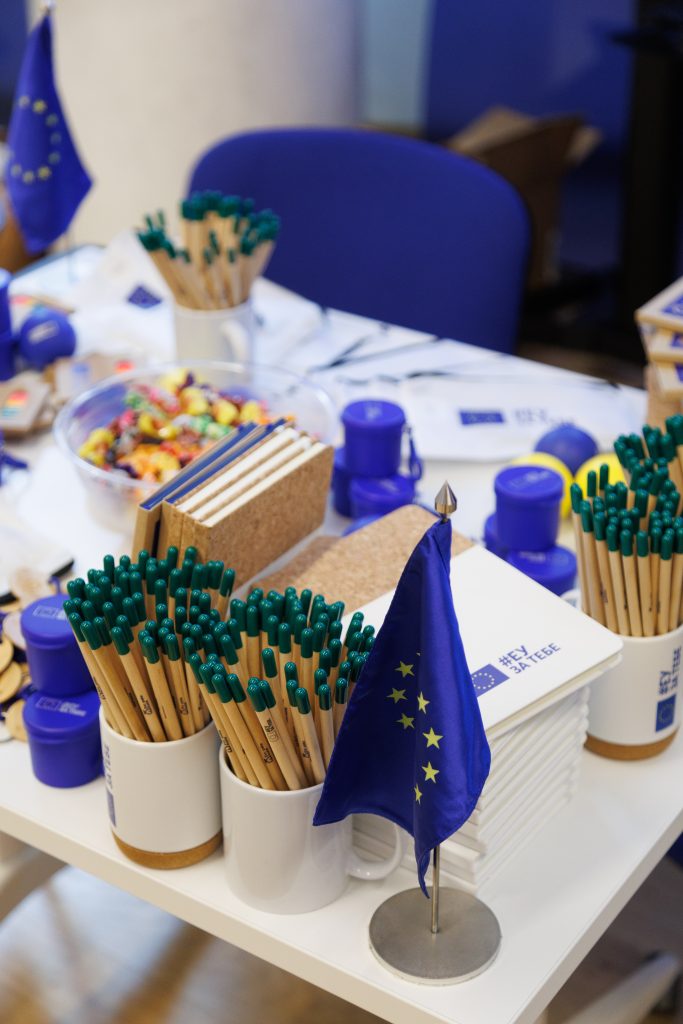
The Cultural Centre of Kruševac also joined the celebration with an exhibition of children’s works, collages and displays on the theme of European languages taught in schools in Serbia, while pupils took their first steps in learning a new language at workshops. In addition to a children’s quiz, participants had the opportunity to watch the animated film Icarus (Luxembourg, France, Belgium, 2022) from the European Film Festival selection, as well as the French feature film Mr Blake (2024). Five primary schools, the Grammar School in Kruševac, and primary schools from Brus and Varvarin took part in the event.
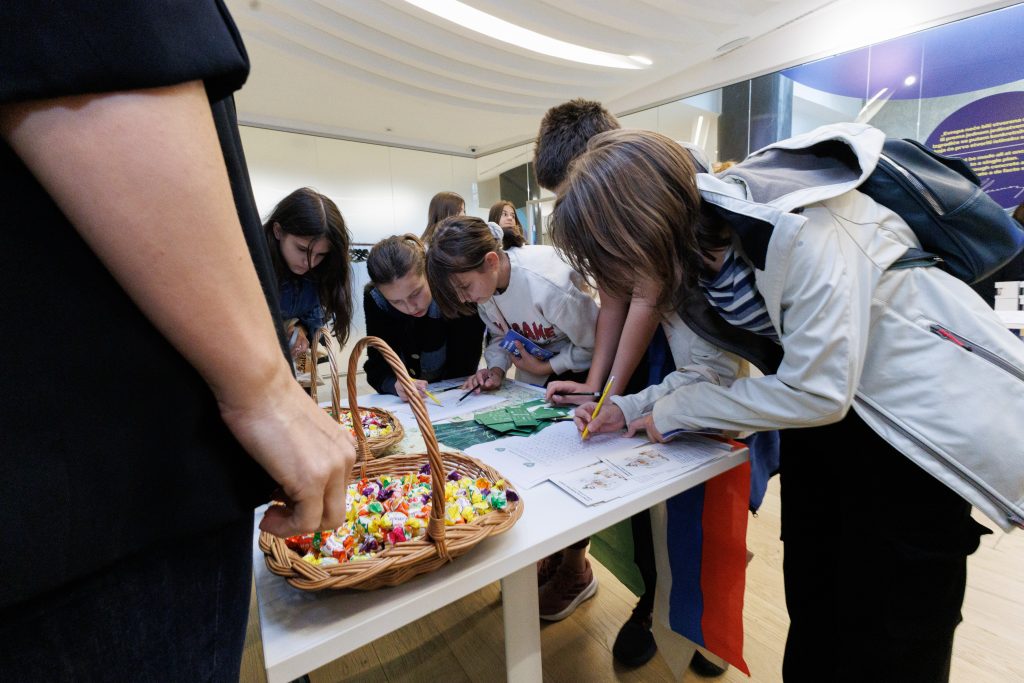
The European Day of Languages (EDL) is celebrated in cooperation with the European Commission, at the initiative of the Council of Europe. It was first marked in 2001, during the European Year of Languages. At the end of that campaign, the Council of Europe’s Committee of Ministers decided that the EDL would become an annual event, celebrated every year on 26 September. Today, it is a day when millions of people in Council of Europe member states organise or take part in activities that promote linguistic diversity and the learning of other languages.

